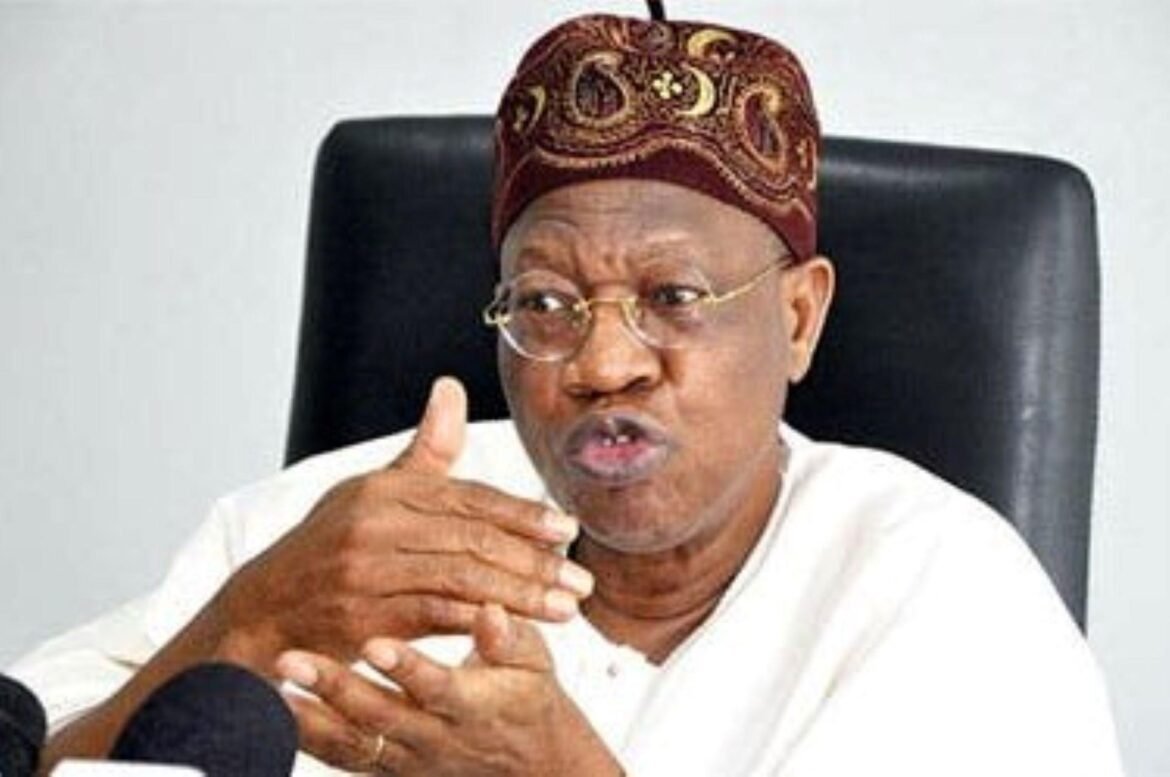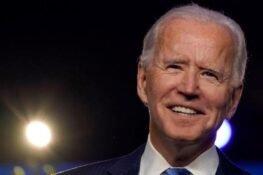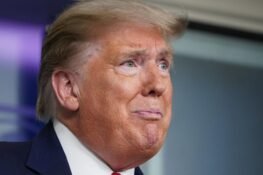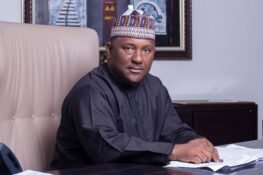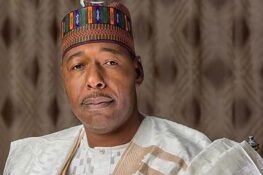Nigerians go to the polls in a few days, thinking that the greatest threat to the election is either the scarcity of the naira or automotive fuel, but that would be wrongly assumed.
The most serious threat to democracy and good governance is fake news.
Fake news has become a threat to Nigeria not as a result of the sophistication in its production but because the social media has made it so easy to distribute any news and many Nigerians are unsophisticated in their analysis of events.
Ordinary people are just too easily fooled – they can’t spot fake news.
As they are fed, so do they feed others in a hurry with ignorance loaded by the forward or share button.
In modern mass communications, where traditional media have become relegated, the average person takes any story with an Internet address as real.
Without caution, they forward on social media what they should have been capable of deciphering as fake with a bit more caution. Without understanding, many have become human botnets used for mass disinformation.
Such persons misinform anyone without discrimination.
Not only do they send to their friends, classmates and colleagues at work, they send to their loved ones too. They are in competition with themselves to be the first to break the news that was no news.
The agents of fake news never verify the accuracy of their content.
The news looks so normal to them and they can become defensive when challenged about the truthfulness of what they distribute.
But the originators of inaccuracies are deliberate, crafty and tricky.
They often have a target and know quite well there are innocent and ignorant agents who will be carriers of disinformation on the social media.
It is quite worrying that Nigerians are struggling to separate grain from chaff because of the clutter of fake news spread by influencers, fake press, conspiracy theorists and political operators who are bent on directing unsuspecting Nigerians towards their imperfect causes.
In a recent report by the British Broadcasting Corporation (BBC), it claimed that Nigerian political parties are secretly paying social media influencers to spread disinformation about their opponents.
At times, the opposite is true when they spread disinformation that are positive about their candidates.
In the run up to the 2016 elections in the United States, the fake news machine run by the defunct British company, Cambridge Analytica, took fake news to the mainstream
The BBC’s Global Disinformation Team said it spoke to whistle-blowers working for two political parties, and prominent influencers who said fake news is now “an industry” in Nigeria. The whistle-blowers disclosed to the BBC that the political parties give out cash, gifts, government contracts and political appointments as rewards for spreading fake news.
.
The BBC went further in its report that it interviewed several influencers who confirmed that payment for false news is now widespread.
“One influencer who asked not to be named – with almost 150,000 Facebook followers – told us he is paid by political parties to post completely false stories about political opponents. He says he does not do it openly but rather plants false stories through other micro-influencers he hires.”
Nigerians pick up bad habits rather quickly. Fake news did not start from Nigeria but has found a good home among Nigerians.
In the run up to the 2016 elections in the United States, the fake news machine run by the defunct British company, Cambridge Analytica, took fake news to the mainstream.
Cambridge Analytica was employed by former President, then candidate, Donald Trump to spread disinformation, and gained access to personal data of millions of Facebook users for the purposes of voter profiling and targeting with fake news.
In 2019, Facebook had to vomit $5 billion to resolve a US Federal Trade Commission probe into its privacy practices, $100 million to settle U.S. Securities and Exchange Commission and a further $725 million to resolve a class-action lawsuit.
It was not just Cambridge Analytica that changed the course of an election in 2016. Nation states like Russia also heavily invested in fake news machinery against Trump’s opponent, Hillary Clinton.
Among numerous fake contents were stories and images showing Hillary Clinton as sick, old and incapacitated. The preponderance of such stories was overwhelming for those who were not that savvy to identify a fake. They took the bait hook, line and sinker.
A study by US researchers in 2021 proved that as many as three in four Americans are clueless about their own ability to spot false stories and therefore become innocent agents who share fake news.
Although about 90% of the participants told researchers they believed they were above average in their ability to sniff out fake stories, most were wrong in their self-assessment.
The study published in in the Proceedings of the National Academy of Sciences and led by Ben Lyons, a professor of communications at the University of Utah, showed that “overconfident individuals are more likely to visit untrustworthy websites in behavioral data; to fail to successfully distinguish between true and false claims about current events in survey questions; and to report greater willingness to like or share false content on social media, especially when it is politically congenial.”
Fake news generation has become so sophisticated that only those with eyes and skills to spot them are protected.
Deepfakes and artificially generated videos, audios and images can pretty much fool anyone.
Deepfakes are defined as “synthetic media in which a person in an existing image or video is replaced with someone else’s likeness.”
Most local fake stories are often just astonishing stories about events that have an impact on how people may perceive political candidates, events, religious or ethnical groups, posted by unknown and unreliable websites and Facebook pages that purport to be credible
`Such videos employ the latest technology and techniques from machine learning and artificial intelligence to manipulate or generate visual and audio intended to deceive.
And such technologies are now at the fingertips of anyone willing to pay a few dollars online to upload content and download them transformed as fakes.
While Nigerians have easy access and are using sophisticated tools, most of the fake news items are not that good to fool the suspecting.
Some are old photos form unrelated events recycled as breaking stories, while others may just be outright lies that their conveyers do not bother to verify.
Most local fake stories are often just astonishing stories about events that have an impact on how people may perceive political candidates, events, religious or ethnical groups, posted by unknown and unreliable websites and Facebook pages that purport to be credible.
Some of these online destinations are known to make false accusations against a particular party, politician or cause while using the doublethink methodology in George Orwell’s 1984 to take multiple stands on the same issues for their sponsors and against their sponsors’ enemies.
This election will somehow be influenced by fake stories and it is so sad to admit that Nigerians are now in a season in which fake news could determine the outcome of an important election.
Quite frequently, I am asked by people close to me to verify the authenticity of news. Some of these stories are so obviously fake that they could be easily spotted by checking the website of a reliable newspaper or broadcast station.
Apart from those who check, most others just enjoy fake news, and it has become another source of entertainment.
But lessons from the United States, Brazil, France and other countries are warnings that we cannot joke with the phenomenon.
Rather, we must deal with it.
Fake news may leave Nigerians with dire consequences for a long time to come, if they make electoral choices based on falsehood; since anyone who lies or sponsors lies cannot be a good leader
Fake news can even be more dangerous. Its originators can easily throw the nation into confusion by spreading fake versions of election results, which can easily escalate to chaos.
The reliable media, including established newspapers, well-established online news sites, the radio and television, remain the most credible sources of news at a time when fake reports pose a grave danger to democracy.
Former Estonian President, Toomas Hendrik Ilves, famously said: “Fake news is cheap to produce. Genuine journalism is expensive.”
That’s how to know where to source news. Anyone who fails to go for expensive news at this time can be an unwilling bomber who blows up those they care for.
